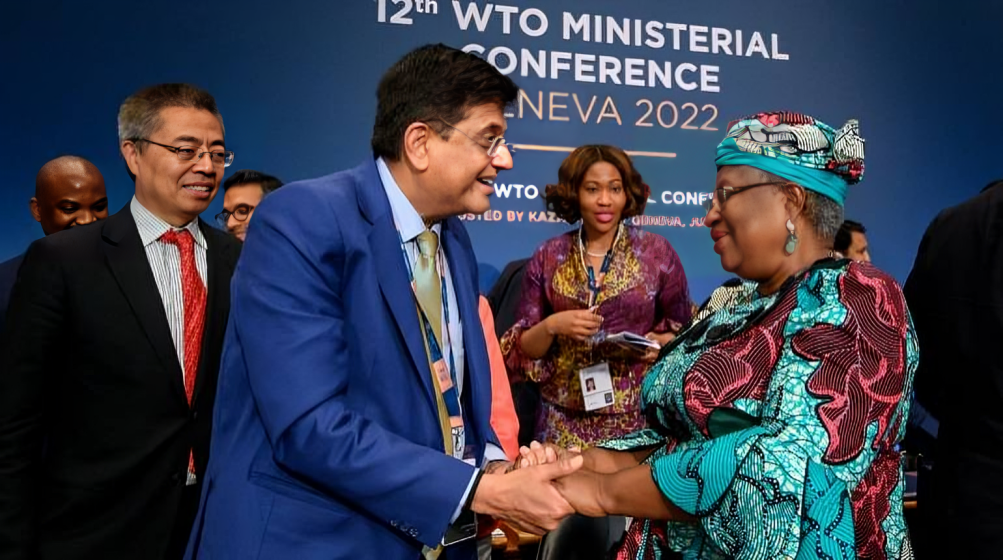India Advocates Flexibility in WTO Negotiations
This is in line with India’s long-standing position to oppose discussions or establishment of mandates at the WTO on what the country considers non-trade issues such as MSME, environment and sustainability, and gender

THE WTO'S 13TH MINISTERIAL CONFERENCE (MC13) WILL GO ON TILL FEBRUARY 29 IN ABU DHABI (Image Source: https://www.moneycontrol.com/news/business/india-bats-for-easier-exit-from-wto-pacts-cautions-against-discussing-non-trade-issues-12354941.html)
India is pushing for changes in how countries can leave agreements made through the World Trade Organization (WTO). This move aims to help developing countries like India deal with challenges they face in becoming more industrialized. The country also expressed worries about linking long-standing development issues with new topics like “Trade and Industrial policy.”
At the thirteenth Ministerial Conference (MC13) of the WTO, held in Abu Dhabi starting February 26, India raised its concerns. Leading the Indian delegation on the first day was Commerce Secretary Sunil Barthwal.
During discussions on Trade and Inclusion, Barthwal warned that mixing topics not directly related to trade with WTO rules could make global trade more chaotic. He mentioned that bringing up issues like Gender and small business support (MSMEs) at the WTO might not be practical because other international organizations were already discussing them.
India has a long-standing stance against discussing what it sees as non-trade issues, like MSMEs, environment, and gender, at the WTO. The country believes these topics should be left to forums like the United Nations. India’s main goal at MC13 is to keep non-trade issues out of the WTO’s discussions.
New Delhi prefers handling certain issues, like the European Union’s (EU) carbon tax on imports of steel, iron ore, and cement, through direct talks with the EU rather than at MC13. The EU’s Carbon Border Adjustment Mechanism (CBAM) aims to make
imported goods pay for the carbon produced during their manufacturing process. India is already discussing this with the EU to make things easier for its domestic industry.
India argues that any steps taken to fight climate change shouldn’t unfairly target global trade. Even though the WTO has informal groups discussing MSMEs and gender, India has stayed away from them, saying these issues aren’t part of the WTO’s job.Top of FormBottom of Form
Team Profile

- News Writer
- Shubham Chakraborty, a Freelance Writer, holds an MBA from XLRI and boasts 6.5 years of extensive corporate experience. Departing from his corporate path, he embarked on a journey to fulfill his childhood dream of focusing on writing.
Latest entries
 English12 May 2024US Likely to Impose 100% Tariff on Electric Vehicle Imports from China
English12 May 2024US Likely to Impose 100% Tariff on Electric Vehicle Imports from China English26 March 2024UN Security Council Demands Immediate Ceasefire for the First Time Amidst Ongoing Israel-Gaza Conflict
English26 March 2024UN Security Council Demands Immediate Ceasefire for the First Time Amidst Ongoing Israel-Gaza Conflict English23 March 2024Bloodbath in Moscow: ISIS-K Delivers Shocking Blow to Heart of Russia
English23 March 2024Bloodbath in Moscow: ISIS-K Delivers Shocking Blow to Heart of Russia English20 March 2024A Hollow Victory: Putin Claims Landslide in Russian Election and Scorns US Democracy
English20 March 2024A Hollow Victory: Putin Claims Landslide in Russian Election and Scorns US Democracy









